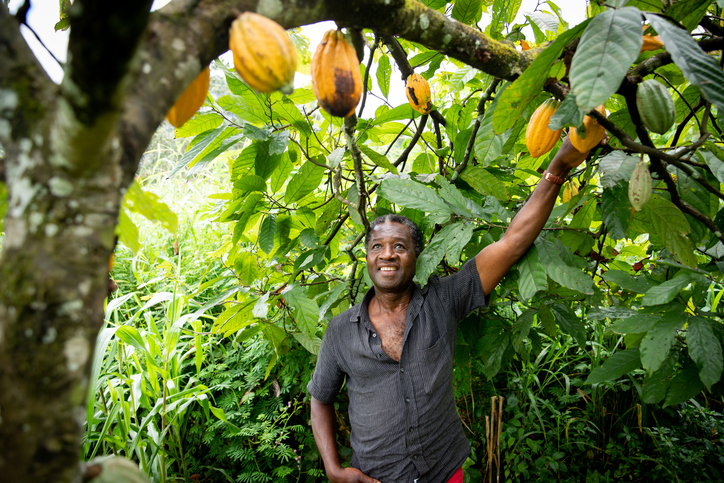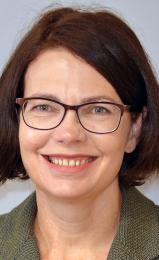Bold Ideas. Real Results.
Abt Global is an engine for social impact, fueled by caring, curiosity and cutting-edge research that moves people from vulnerability to security. Whether it's welfare or weather disasters, the environment or economics, agriculture or HIV and AIDS, we address the world's most pressing issues. Our work is diverse and so is our bold workforce. We never fail to ask "What if?" We identify patterns, we search for the best way.
Our Mission and Values
Our mission is to improve the quality of life and economic well-being of people worldwide. We are a collaborative, global community, driven by our mission and our commitment to excellence as we strive to meet and exceed the highest professional standards. Our work with vulnerable populations makes a real impact; we are accountable for that work and how we do it. To ensure we’re able to bring our best to clients and colleagues, we promote a healthy balance between our personal and professional lives.
- Beginnings
- Company lands first NASA contract
- 1st large-scale social experiment conducted
- Survey Research Group launched
- Environmental services expand
- Abt begins landmark HIV/AIDS research
- Global health systems and financing work begins
- Pioneering research leads to drug law reform
- First USG Implementing Partner to Earn EDGE Certification
- First to Earn Industry-Leading NSF Certification
Beginnings
Clark Abt opens a two-room office situated above a machine shop in West Cambridge. In the cramped office, 30 employees—scientists, educators, engineers and administrative aides—roll up their sleeves to support the founder's dream of offering clients in industry, government and education an evidence-based, interdisciplinary approach to solving social and economic problems.
Company lands first NASA contract.
Abt Global begins its long-term relationship with NASA. Early work includes studies on the transfer of NASA technology to urban construction, using science and technology as an instrument for social and economic change, and adapting NASA-developed environmental systems—energy efficiency—to earthbound companies. Later studies will focus on NASA’s pioneering projects aimed at attracting underserved youth to the science and technology fields.
1st large-scale social experiment conducted.
Abt Global develops a rigorous experimental design for HUD to analyze the effect of demand-based subsidies on disadvantaged families in two cities. The randomized control trial study—the Housing Allowance Demand Experiment—lays the foundation for design and adoption of the Section 8 voucher program, the nation’s predominant low-income safety-net housing program for the next 30 years.
Survey Research Group launched.
The Survey Research Group is established. One of its contracts is with the Transportation Systems Center of the U.S. Department of Transportation which calls for a survey of mass transit rider's attitudes on transit system innovations. This is the first time that transportation planners and system operators had examined the attitudes of their ridership.
Environmental services expand.
Demand for work with EPA builds, beginning in 1986. By the mid-90s, Abt conducts an acid rain allowance market analysis, a risk/benefit analysis of fungicides used on fruit crops, an ecological risk assessment of dioxin in the paper industry, and studies the global warming impacts of increased use of ethanol. The Company’s work supports EPA’s efforts to improve the nation’s air quality. a major study on toxic substances and Demand for Abt Global’ environmental services dramatically builds, with an economic and regulatory analysis project for EPA’s Office of Water.
Abt begins landmark HIV/AIDS research
The rapid spread of HIV/AIDS hastens the need for more information and interventions. Abt Global responds on a variety of fronts—tracking the incidence of the disease among imprisoned inmates, developing an annotated bibliography of AIDS research, and developing a three-year demonstration of a model outreach, education and intervention program for women involved in activities such as prostitution that pose the potential for transmitting HIV. Later, in 1993, with no cure for AIDS in sight, prevention protocols are seen as the most practical step to slow the transmission of HIV. Abt Global is awarded the master contract to provide scientific and administrative leadership for the HIV Network of Prevention Trials in the U.S. This project results in the enrollment of nearly 20,000 individuals in 17 scientific protocols, clearly demonstrating the feasibility of conducting Phase III efficacy trials.
Global health systems and financing work begins.
Abt's 30+ years of health system strengthening work with USAID begins, leading to seven generations of flagship programs spanning 50+ countries and health reforms in financing, policy, workforce, governance, and more.
Pioneering research leads to drug law reform.
A Company study for the Justice Department reveals that racial disparities in federal sentencing for drug convictions stem from the 1986 Anti-Drug Abuse Act. The imposition of harsh mandatory minimum sentences for crack cocaine trafficking is found to disproportionately affect African Americans. Abt Global’ findings—which eventually contribute to passage of the 2010 Fair Sentencing Act—are cited by the Supreme Court in 2012 in a related case.
First USG Implementing Partner to Earn EDGE Certification
Abt is awarded EDGE Certification, becoming the first U.S. government implementing partner to meet the prestigious global business standard for gender equality. Abt is one of just 20 organizations in the U.S. to attain this certification.
First to Earn Industry-Leading NSF Certification
Abt Global has become the first-ever company to earn a new sustainability certification, the only one of its kind designed specifically for the professional services industry. The NSF/ANSI 391.1 General Sustainability Assessment Criteria for Professional Services measures professional services firms across environmental, social, economic, and sustainable supply chain criteria. Abt earned the highest “Leadership” level certification for transparency and rigor of practices, policies, and commitments spanning these domains.
Abt At-A-Glance
For almost 60 years, Abt has tackled society’s toughest problems, creating evidence and innovation that improves policy, systems, and lives.

Ideas with Impact
Whether we’re addressing extreme weather, vector-borne disease, health policy and systems, or economic growth and affordable housing—our global teams cross boundaries and disciplines to bring integrated solutions for effective outcomes and lasting change.

The statistics are head-turning: The Democratic Republic of Congo (DRC) has an estimated $24 trillion in untapped mineral deposits, yet the sixth highest poverty rate in the world. Its health outcomes are similarly out of line with its wealth.



































